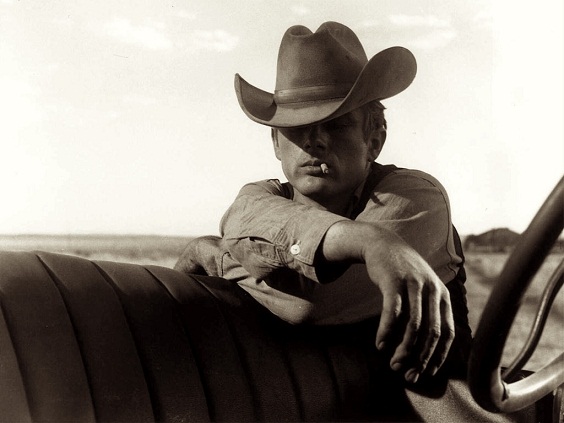In 1939, Joan Fontaine, twenty-one years old, was slowly making her way up the Hollywood ladder. MGM signed Fontaine to play a small part in the high profile production The Women, directed by George Cukor, starring Norma Shearer, Joan Crawford, Rosalind Russell and Paulette Goddard. For the young actress it was a plum assignment.
At the same time, Fontaine was subject to numerous tests for the star-making role of the second Mrs. De Winter for David O. Selznick’s Rebecca, first under the direction of John Cromwell and then Alfred Hitchcock. Screen tests are grueling and the emotional toll is devastating. During this period of her life Fontaine’s nerves were seriously frayed.
Fontaine and her sister Olivia de Havilland lived in the same house in North Hollywood with their domineering mother Lilian, a failed actress. As always, Joan and Olivia were engaged in a low-intensity conflict, which continues tot his very day. And like so many Hollywood actresses, Fontaine’s father was long gone.
Fontaine freely admits that she had a thing for older men. Ambitious but deeply vulnerable the young woman was looking for security and a “protector.”
She already had a brief affair with her childhood idol, the handsome leading man Conrad Nagel. Her description of their first intimacy is less than passionate:
The whole experience had been no more than a quick surgical violation conducted with considerable modesty and no conversation. It reminded me of the time when I had to stand up in class as a child and be vaccinated. This just wasn’t as neat… and hurt more. Yet I was smugly pleased that I could now consider myself an adult.
Fontaine’s clinical detachment is best understood in context. She just wrapped production on Gunga Din. Her role was small, but her dewy innocence left an indelible impression on producers and directors. Fontaine confesses that during production she girlishly day-dreamed about her director, George Stevens, another older man.
Enter Brian Aherne, a respected British stage actor making a name for himself in Hollywood. He was charming, handsome and of course older.
Quick as a jump-cut, Fontaine and Aherne were engaged. But the night before the wedding, Aherne’s friend, director Jean Negulesco, called Joan and told her that Brian had cold feet and wanted to call off the wedding. Unwilling to be publicly humiliated Fontaine told Negulesco that she would be at the church at the appointed time. Brian could take it from there. If he wanted to divorce her the next day, he could.
Aherene did show up and the unhappy couple pronounced their wedding vows.
In addition to the emotional dysfunction Fontaine recently had a wisdom tooth extracted. Her jaw was swollen and aching. Aherne’s sinuses were acting up.
Right after the wedding reception, the newlyweds drove in Aherne’s light blue Packard convertible to San Francisco’s swanky Fairmont Hotel, without ever discussing Negulesco’s midnight phone call.
In her fine memoir, No Bed of Roses, Fontaine describes the honeymoon:
After ordering champagne and dinner, we both changed our clothes, I into a white lace-trimmed negligee, Brian into a navy-blue-and-red patterned dressing gown. He hoped I’d excuse the worn elbows; he’d ordered a new robe from his tailor in London, but it would take months to deliver. After a knock at the door, our dinner was served in our suite by a bevy of unctuous waiters. The door finally closed on the embarrassed newlyweds, the thirty-seven-year-old groom, the twenty-one-year-old bride.
During dinner, perhaps to conceal his apprehension, Brian recounted his previous romance with Marlene Dietrich, his affection for her daughter Maria. He got up from the table to illustrate ballet steps he taught the child, having learned then while going to the Italia Conti Drama School in London. He asked me if I would object if he took Maria out one night a week. Pulling myself together, I replied, “No, not if I can go out with Conrad Nagel on those nights.” He never mentioned it again, though Marlene called him several times during our marriage to ask his advice about her daughter.
With Brian pirouetting about the room, his dressing gown flapping, its tassels waving in the air, I grew increasingly numb. The foghorns in the bay hooted their melancholy warning, the plaintive sounds I remembered from my childhood.
Finally, closing the bedroom door behind us, Brian said he wished he’d remembered to pack a hot-water bottle for his sinuses. I could have used an ice bag on my aching cheek. The lights were turned out. Somewhere, from the cornice of the hotel room, I felt, Mother was watching.
During the night, I rose quietly, slipped on my negligee, and went into the adjoining room. I huddled on a marble window ledge and watched the fog whirl past our Nob Hill aerie. Brian found me asleep there in the early morning. Mrs. Aherne had a wedding night not to remember.
The honeymoon was definitely over.
Fontaine went on to win the first of her three Best Actress Academy Awards for Rebecca. Aherne’s career went cold as their marriage. They finally divorced in 1945.



COMMENTS
Please let us know if you're having issues with commenting.